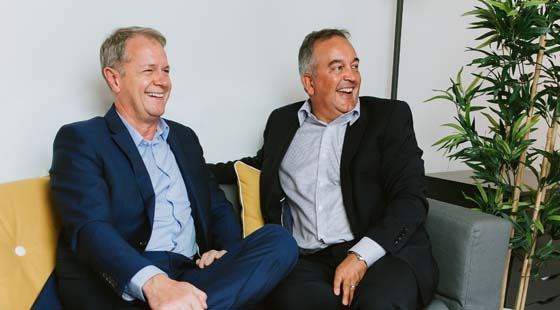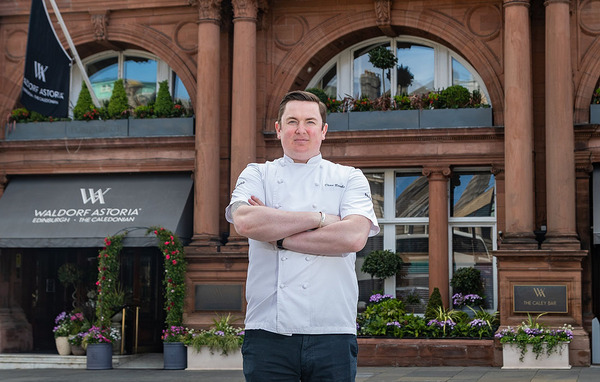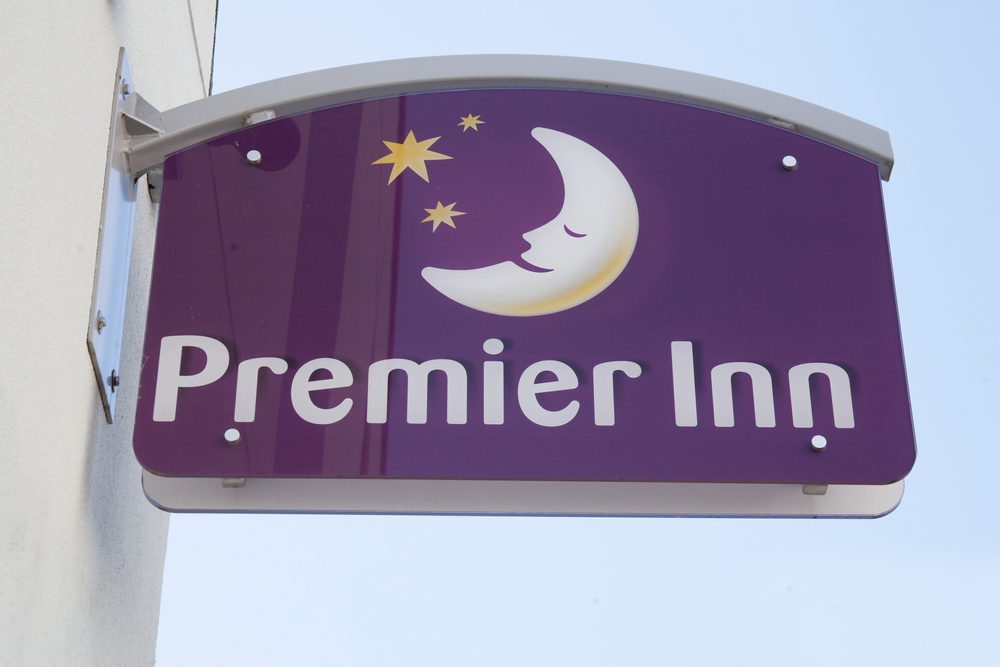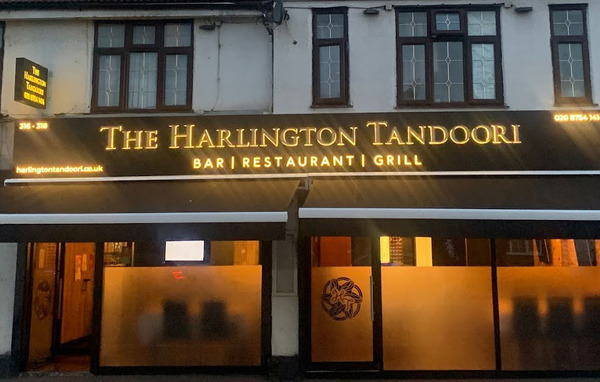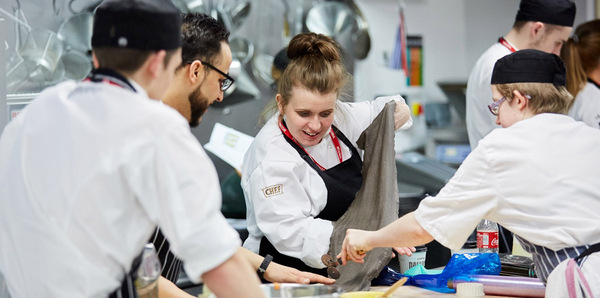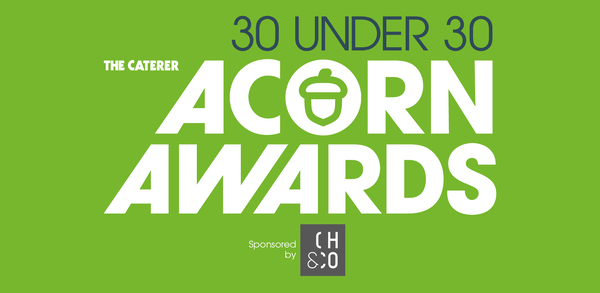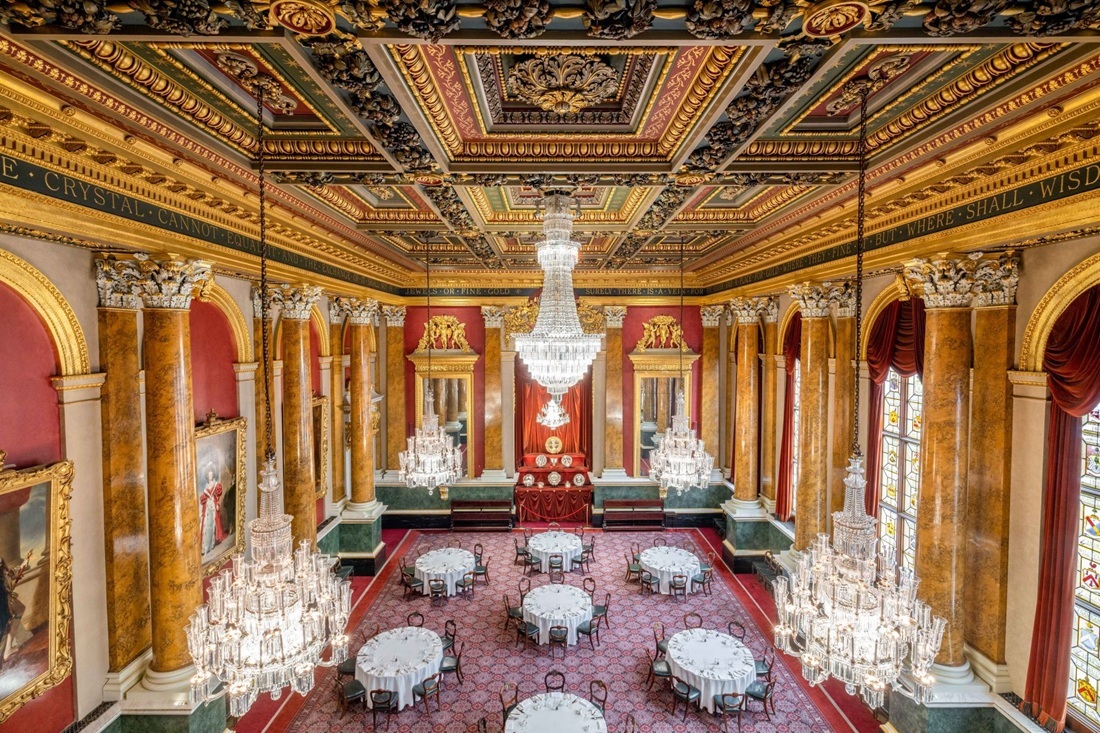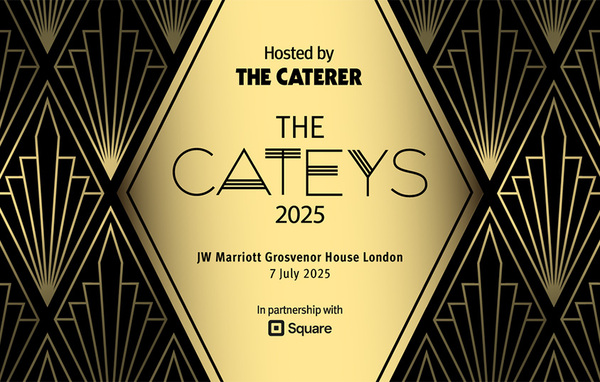The Caterer interview: Brian Allanson and Ruston Toms of Blue Apple
Having won £5.4m in new business this year, contract caterer Blue Apple is ready to take on the big boys, as chief executive Brian Allanson and sales director Ruston Toms tell Janie Manzoori-Stamford
You launched Blue Apple together in 1998. How did the partnership come about?
Brian Allanson: We were working at Initial Catering. We used to sell contracts, but I was keen to see that they were being operated properly after I'd sold them. Unfortunately, that wasn't always the case. We thought we could probably do this ourselves and make a better job of operating it.
Ruston Toms: We were both on decent salaries and driving BMWs, but we decided to hand in our notice and take the plunge. We each took loans of £15,000 and had equal backing from some minority shareholders.
BA: At the time, it was a lot easier. The start-up costs were low and our expectations weren't overly high. We just wanted to work for ourselves and see how it progressed.
Where did the name Blue Apple come from?
BA: We'd both worked for large organisations that were brand led. Allanson Toms sounded too much like a solicitors' firm and it also directly associated us with the business, whereas we knew that as the company got bigger, it would be about more than just us.
RT:
How important is such an exercise?
BA: Youâve got to have a target to aim for. If you havenât, youâll just disappear. It was very important to both of us to get this brand identity and discuss what we wanted out of the business. Our goal was to turn Blue Apple into a John Lewis-style partnership, where everyone has a say in how the business is run and everyone shares in the profits. Itâs still something that weâre aiming for.
RT: We said we wanted to create a workplace foodservice brand that stands for fresh, healthy and high-quality food, commensurate with BMWâs standards. So, not necessarily the cheapest contract caterer out there. â¨I think weâve stayed true to our core values.
As foodservice operators have become alive to the principles of fresh food and staff training, how do you stand out from the crowd?
RT: There are no USPs in contract catering. The industry is always moaning about the skills shortage, but we buy our food from the same core suppliers and it is hard to differentiate. Healthy, nutritious, contemporary-style food is a given; youâve got to do that if youâre going to succeed. It comes down to surrounding yourselves with great people, from board level to the team member who prepares the lattes.
You describe your contract with Blockbuster in 1999 as a landmark win. Why?
RT: Geographically, it was great: just outside London and in an old country house. It was being refurbished and we worked with a designer to create an American diner with a film theme. It was a great reference site, with the emphasis on quality fresh food and great staff. Thatâs what you need to start your own business: great people, self-belief, a bit of luck and some great reference sites to get you going.
In Blue Appleâs first year, it turned over £72,292. Now itâs £12.2m. What do you expect to achieve over the next reporting period?
BA: Our run rate is £14m, so weâve put on 15%. Weâve always been conservative in the way that weâve handled our finances and, other than the minority shareholding, weâve never had any borrowing. Three years ago, we bought out those shareholders through cashflow, with the final payment in January this year. About 18 months ago, we decided to invest in our people. Our profit forecast now is 40% higher because of that investment, so itâs starting to pay off.
RT: We were always closely involved in winning new business and had to be at the meetings. But thatâs not the case all the time any more because we know the team is on-message.
BA: Weâre a patient company, so we donât try to force things. Weâve been around for a long time, but I think our time has come. Weâve built a good portfolio of clients and weâve got the people to take the business to that next level. If we keep doing what weâre doing, weâll be turning over £22m by 2020, with an EBITDA of £1.5m.
Does the level of consolidation in the industry in recent years, with many smaller operators being snapped up, present an opportunity?
BA: Definitely. Thatâs one of the reasons weâve put this strategy in place for the next three years. The admin involved in restabilising a larger organisation means that clients are going to be neglected â" and there will be fallout. But we havenât really seen that happen yet. The influx of new business that weâve had hasnât been due to that fallout. Weâre looking at next year, which is probably when clients are going to start looking at their options.
RT: On that point though, we are interested in some sort of deal with other caterers, if the right opportunity presents itself.
Are you looking to be bought or to buy?
BA & RT: To merge.
BA: Weâre looking at how we can find a similar-sized like-minded business with which we can accelerate our growth. We talk to companies all the time. And weâve been approached several times over the years. One potential future exit weâre keen on exploring is a management buyout in about five yearsâ time. Weâll be in our late 50s, and while Iâve still got a lot of energy to give, I donât want to put it into a business that stagnates. I want to put it into one thatâs still growing and gives us that buzz. So the team weâve got now is the core that will grow the business.
RT: Weâre planning our exit in a careful way. Thatâs not to say weâll put a âfor saleâ sign up. Weâll all sit around the table and see what our options are, either with our existing team, which may want to do a management buyout, or a like-minded business that wants to merge.
Which contracts has Blue Apple won this year?
RT: We got our first City lawyers, DAC Beachcroft, which has two central London sites and one in Bristol. We won Whitbreadâs group headquarters in Dunstable, Bedfordshire, and also a contract with TATA Technologiesâ new European HQ in Leamington Spa. The combined turnover of these contracts is about £5.4m.
It has been a year shrouded in economic â¨and political uncertainty. What has been â¨Blue Appleâs experience of 2017 so far?
BA: It has been very positive but I think itâs a timing thing â" itâs still to filter through. Food costs are now starting to hit a bit more, but even through the recession, we didnât feel it to any great extent, other than during 2008/09, when we bought Zest and could have gone backwards. That added another £2m in turnover to the business and it was the only period that our growth in turnover wasnât organic.
RT: But thatâs contract catering. It can weather storms. Itâs a different type of competition from the high street. People are still going into the workplace and eating there, though they might not be spending as much. But driving spend in our contracts is something we think weâre good at. Weâve invested in our marketing team and weâre producing apps, loyalty schemes and all sorts of promotions â" high-quality marketing and merchandising collateral.
What do you expect to be your biggest headaches in the next 12 months?
BA: Thatâs difficult to answer because, from where Iâm sitting, itâs the most successful Iâve ever felt in the whole of the business. The economy will present us with challenges. And the way the world is presents difficulties. People are fearful after incidents like Manchester and London Bridge. They might stop wanting to do things; there might be more working from home. So we could lose customers there.
RT: If companies decide to disappear to Europe with Brexit, that could have an impact, but maybe not on us because we donât have a great deal of City business. It will probably be the big financial institutions that might want to move.
And what are the biggest opportunities?
BA: Weâre at that stage where weâre ready to challenge the big boys and take on larger contracts. Probably more City contracts now that weâve got Beachcroft. Weâve got AXA as well, which gives us an opportunity to get a foothold. Weâre used to operating small to medium-sized businesses, so weâre ideally suited to know what the minutiae are in a business and to adapt them to a larger organisation. The future is bright. Our time is now.
RT: Thatâs what I say to clients in pitches. Theyâre getting a business thatâs really in its prime now. Weâre big enough to cope, but small enough to care.
Need to know
Founded 1998
Contracts 75
Staff 370
Key clients EasyJet, Monarch Airlines, â¨TATA Technologies, AXA, â¨DAC Beachcroft, Whitbread
Blue Appleâs growth
â¨2015/16 £11.1m (actual)
2016/17 £12.2m (actual)
2017/18 £15m (on target)
2018/19 £17.5m (forecast)
2019/20 £20m (forecast)
Videos from The Caterer archives



